Australia riding coal train despite climate pleas
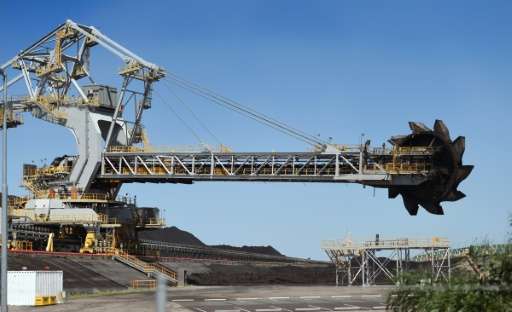
It is a battle being played out around resource-rich Australia.
In one corner ecologists, and climate change campaigners, who warn coal mines are ticking "carbon bombs"; in the other, mining giants and politicians, who argue they are vital for economic success.
Coal is the nation's second most valuable export, adding almost $30 billion to the economy in 2013-14, and supports 150,000 jobs, according to the Minerals Council of Australia (MCA).
But the country is also one of the world's worse per capita greenhouse gas polluters, due to heavy use of coal-fired power—it provides around 75 percent of the country's electricity—and a relatively small population of 23 million.
These tensions between the environment and economy are something the residents of Bulga in New South Wales know all too well.
They have been engaged in a six-year David versus Goliath fight against the state government and mining giant Rio Tinto to halt the expansion of a nearby coal mine, which has involved court cases and protests.
Last week (Nov 27) New South Wales approved the extension of the long-standing Mount Thorley Warkworth mine, despite fears it would result in wildlife habitat destruction, reduced air quality, and through the burning of the coal, release even more of the greenhouse gases blamed for climate change.
Resident and campaigner John Krey said the community has vowed to fight on, accusing the state of "swimming against the tide of history" by pushing for the mine, as world leaders meet in Paris to discuss curbing carbon emissions.
"Here we are announcing that there will be another massive coal expansion, producing more of that stuff that the world doesn't seem to think should be produced," he told AFP.
But Rio Tinto said receiving approval to expand the mine, which employs 1,300, was a "great relief for thousands". It estimated that over the lifetime of the mine, the New South Wales economy would be boosted by $1.1 billion in wages, royalties and taxes.
Undaunted
Australia has vast reserves of the mineral which is fuelling plans to ramp up coal exports and there are dozens of projects designed to feed growing Asian demand in the pipeline.
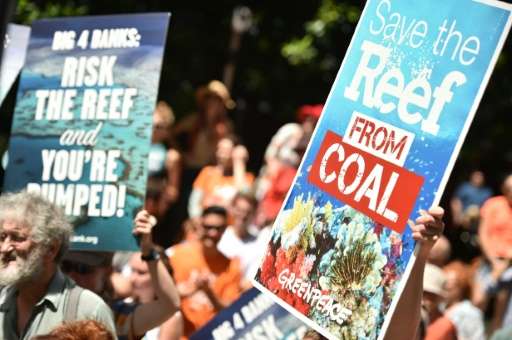
But it has been criticised for not setting high enough targets for carbon emission reductions, with sceptics saying its pledge to cut emissions by 26 percent from 2005 levels by 2030 falls short of the nation's fair share globally.
Speaking in Paris, Prime Minister Malcolm Turnbull said Australia was undaunted by the climate change challenge, pledging to redirect $800 million from its foreign aid budget to help at-risk Pacific islands, as well as investment into renewable energy research.
But he has previously dismissed demands to scale back coal production, saying a moratorium on new mines would "make not the blindest bit of difference to global emissions" warning other nations would supply it, if Australia stopped.
Environmentalists argue UN hopes of curbing global warming to less than two degrees Celsius (3.6 Farenheit) are incompatible with the nation's coal expansion plans.
Australia produced 527 million tonnes of coal in 2012-13 and the Minerals Council of Australia says energy demand is expected to grow by 80 percent in south east Asia alone by 2040, with coal expected to supply 40 percent of the growth in electricity generation.
"We've got to be reducing emissions not increasing them and any more digging up of coal goes in the opposite direction from where we must go," says Lesley Hughes from the Australian Climate Council, an independent body.
Ticking carbon bombs
Hughes says mines planned for the eastern Australian states of Queensland and New South Wales are in contrast to government commitments to lower pollution.
"Where the coal is burnt is not the point, it's that it's being burnt and we have to reduce it being burnt everywhere," Hughes tells AFP.
Campaigners say with as many as nine large mines proposed for Queensland's Galilee Basin alone, including the massive India-backed Carmichael project, Australia could see its coal exports double in a decade.
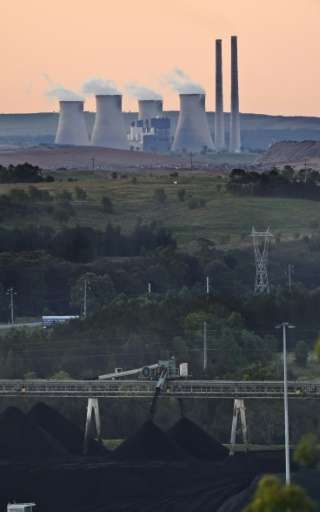
"The Galilee Basin is one of the world's largest carbon bombs," says Josh Creaser, a campaigner with the environmental group 350.org.
"And if we are to have a chance of staying below two degrees it's one of those projects that must stay in the ground."
Australian governments are committed to exploiting the Galilee, despite legal challenges from environmental groups who fear shipping the coal from a coastal port could also harm the Great Barrier Reef.
In October, the Queensland state government said the Carmichael project—which will produce an estimated 60 million tonnes of thermal coal a year—offered jobs, economic development benefits and potential royalties.
But with the price of coal slumping, others argue that the huge mines planned for Australia may simply no longer be feasible.
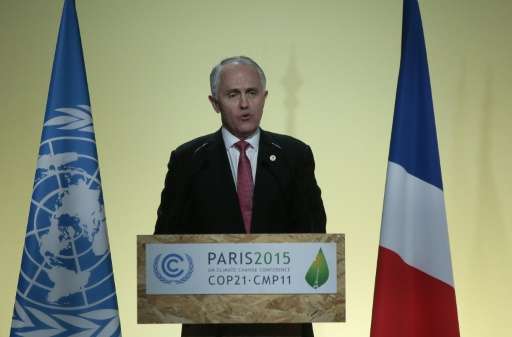
"I just see a massive, rapid transformation of the world's electricity markets," says Tim Buckley from the Institute of Energy Economics and Financial Analysis.
"And that just means that the need for Australian coal is going to diminish with every year going forward."
For John Krey in Bulga, the issue is far less nuanced.
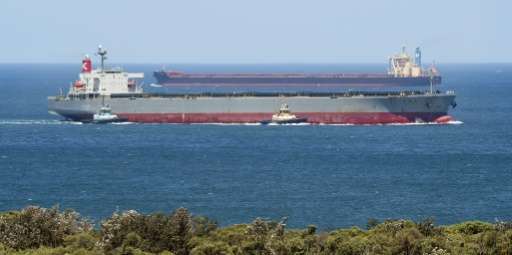
He said: "There are massive mines which should not be going ahead which would appear are getting the approvals. This can only be got if they ignore all the ecologists, if they ignore global warming, if they ignore the price of coal heading south, that the mining industry for coal is in structural decline.
"And yet they are still desperately keen to approve mines."
© 2015 AFP





















